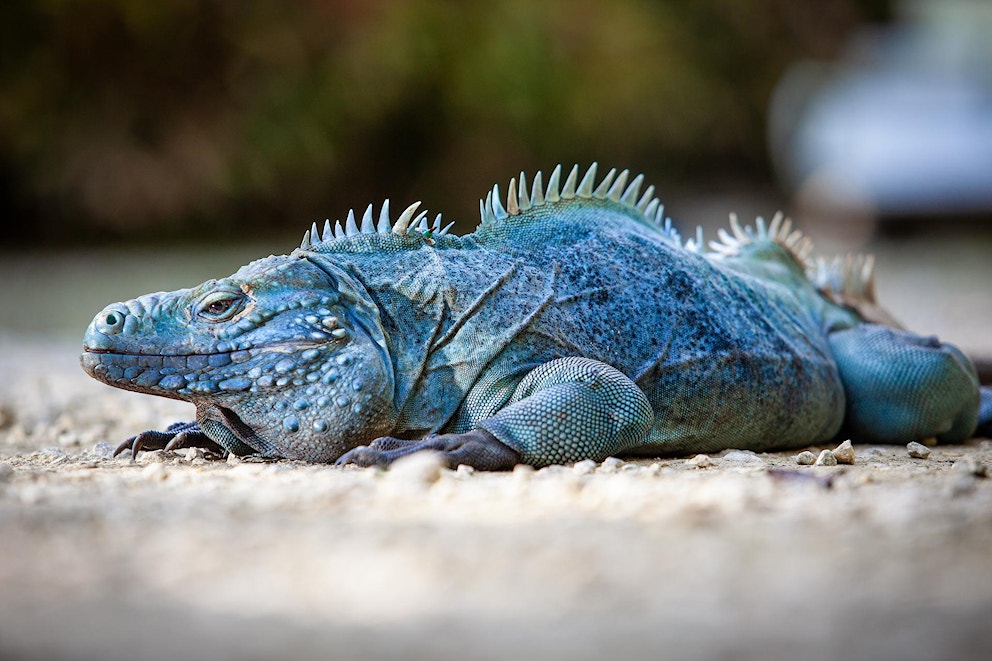
Cayman's Local Animals
A description of the wildlife you will find in the Cayman Islands.


Although the Cayman Islands are not as lush as some of their Caribbean neighbours, they are nonetheless home to a wide variety of wildlife with a number of endemic and protected species. Some of the wildlife to look out for includes:
Sea Turtles
Sea turtles used to be so numerous in Cayman waters that when Christopher Columbus first visited he called the islands Las Tortugas. The geography of the Islands is particularly suited for turtles’ breeding habits; the low sandy beaches are ideal for turtles to lay their eggs, whilst, in the local lagoons, there is plenty of undersea turtle grass upon which the herbivorous Green Turtle feeds.
Agoutis
Many people assume that the agouti, or Cayman rabbit, is a native species, but this large rodent was actually introduced from Central America in the early 1900s. The animals were transported to Grand Cayman by travelers who brought them here as a food source. They live in monogamous pairs, feeding on fruits and seeds, and act as important seed dispersers. Scientists speculate that agoutis are filling a niche once occupied by the hutia, a similar type of animal, which was endemic to the islands but went extinct shortly after European colonization. An agouti is a lucky sighting, as they are generally very wary, and are usually glimpsed as they hop away into nearby trees. Look out for them in the garden of the Mission House, the Mastic Forest, or in the Botanic Park.
Turtle Safari Admission
Access to the Turtle Centre, cafe and the education centre
Recommended for all ages
Admission to the Queen Elizabeth II Botanic Park
A 65-acre park Queen Elizabeth II. It's dedicated to preserving local flora and fauna and is famous for its Cayman Blue Iguana programme
Recommended for all ages
Admission to the Cayman Parrot Sanctuary
The Cayman Parrot Sanctuary offers a friendly, interactive and educational experience for the whole family.
Recommended ages: 2-70
Snakes
There are four species of snakes found on our islands. All are harmless and not a cause for concern. Our beautiful snakes are endemic and found nowhere else in the world – in fact, each island has its own unique subspecies. You are most likely to see the Cayman Racer, a long brownish snake with a gorgeous pink belly. If you’re lucky, you may see a Cayman Ground Boa, also locally called the Lazy or Friendly Snake, a dwarf species of boa whose common names give a good idea of its character. The Cayman Islands are also home to a rare, endemic water snake that makes its home in the mangroves, and a blind snake that burrows in the ground and so is rarely seen by people. These animals are a very important part of our natural ecosystems and none will harm humans, so please respect these fascinating creatures.
Hickatee
A variety of freshwater turtle, hickatees are found in the fresh water and brackish ponds around the islands. They are often seen sunning on logs and will jump in the water when disturbed creating a splash as they disappear. Hickatees are omnivores, feeding on aquatic vegetation and insects, and probably live 25 to 30 years. The absence of fossil remains indicates that hickatees may have been introduced as a food supply long ago by early settlers or indigenous Caribbean people who probably visited our islands on their travels.
Iguanas
Three varieties of iguana inhabit the islands:
The Blue Iguana, is an endangered species endemic to Grand Cayman. This dragon-like lizard has bluish hues and can grow to five feet in length. By 2002, it was estimated that only about a dozen of these iguanas remained, but the National Trust’s captive breeding programme at the Queen Elizabeth II Botanic Gardens is making great strides in their recovery, with more than 1200 having been released into the wild.
The Common or Green Iguana, on the other hand, is considered an invasive species that contributes to the threats faced by the Blue Iguana. Recently, there were hundreds of thousands of these iguanas on Grand Cayman, but a government sponsored cull program has reduced the population to manageable levels.
Sister Islands Rock Iguana. This iguana is native only to Cayman Brac and Little Cayman and is also a protected species. Their population on Cayman Brac is very small, and although they appeared to be thriving on Little Cayman because they live alongside their human neighbours, their population was falling due to predation by feral cats and car fatalities. Little Cayman residents say that recent feral cat control efforts have led to the survival of record numbers of hatchlings! Please be careful when driving as iguanas have the right of way on the roads on Little Cayman.
Bats
Bats are the only mammals native to the Cayman Islands. Nine species of bats have been found in the Cayman Islands. All are rare or very rare and one species is nowhere else in the world other than Grand Cayman. They are vital in maintaining a balanced ecology and harmless to humans.
Birds
Over 200 species of bird are found in the islands, some 50 of which are resident populations. There are 5 seabird colonies and seven bird sanctuaries. Species found in the Cayman Islands include bananaquits, boobies, frigate birds, herons, egrets, ducks, sandpipers and terns.
Parrots
The Grand Cayman Parrot and the Cayman Brac parrots are endemic to their respective Islands and both are protected species. With iridescent green bodies and white eye patches, they are well camouflaged when sitting amongst foliage.
The National Trust for the Cayman Islands
Special thanks goes to the National Trust for the Cayman Islands who shared their knowledge and research on Cayman's wonderful animals with the Explore Cayman team. They are a wonderful resource for our islands and they work very closely with local schools (preschools to university) sharing the importance of preserving Cayman’s unique natural and historic heritage.
Where to find the wildlife?
Whilst the marine life of the Cayman Islands gets all the headlines, there's a diverse eco-system on land too. A visit to theTurtle Centre, hiking the Mastic Trail, a trip to the Cayman Parrot Sanctuary and a meander through the Queen Elizabeth II Botanic Park are four boxes to tick for wildlife enthusiasts.







